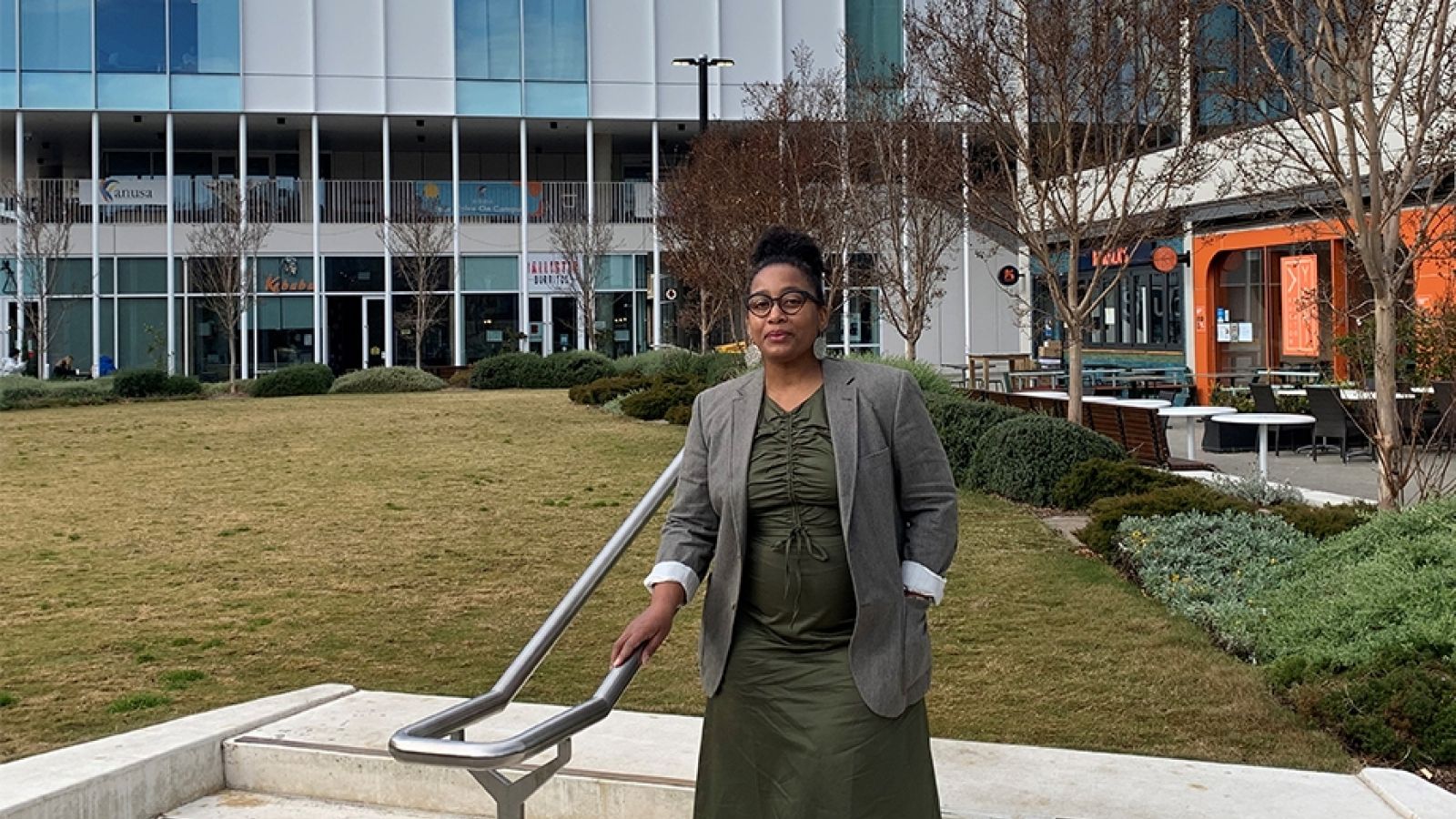New conversation series seeks solutions to racism

Dr Karo Moret-Miranda. Image: Eduardo Eyras.
An ANU historian who examines race and power in her research has joined students in the fight against racism both on and off campus.
Dr Karo Moret-Miranda, in collaboration with the Bla(ck), Indigenous, People of Colour (BIPOC) Department, is spearheading a conversation series with the aim of developing strategies to combat discrimination. It’s called Fighting Bigotry and Racism: Leading Change in the Social Sciences and is co-facilitated by Dr Tania Colwell, who is also from the School of History.
“I'm a social scientist. So I'm going to fight from the social sciences,” says Dr Moret-Miranda, an Afro-Cuban researcher and lecturer.
One of her current projects is funded by the Gender Institute and it looks at women of colour in a manuscript called Scivias by 12th-century Benedictine nun Hildegard von Bingen. Her other project, supported by a Jean Monnet Grant from the Centre for European Studies, is about women of colour in the European Parliament and how they attained their positions of leadership.
Dr Moret-Miranda started the conversation series in response to a report detailing incidences of racism that students had brought to the attention of the BIPOC Department in 2021.
ANU has a zero tolerance approach to discrimination, and in its 2021-2025 Strategic Plan renewed its commitment to inclusion, equity and diversity. The College of Arts and Social Sciences, in particular, has a longstanding commitment to combating bigotry in all its forms, especially through the Freilich Project for the Study of Bigotry, which recently brought the ‘We Bleed the Same’ photographic exhibition to the ANU. This exhibition is currently on display in the Research School of Social Sciences Building on Ellery Crescent.
“We shouldn't believe that this is something that only happens outside our classroom. All these students, victims, and aggressors – are our students. So we need to do something about this,” she says. “It's our responsibility.”
The first event, held in early May, featured on the panel Professor Karima Laachir, Head of the Centre for Arab and Islamic Studies, undergraduate student Gia Mehdi, and postgraduate student Fatema Mansuri. All three are Muslim women and from CASS.
Gia, Dr Moret-Miranda said, spoke about being a queer undergraduate from a Muslim country, and her interest in studying the Middle East. Fatema expressed her worries about the barrier of her skin colour in pursuing a career as a scholar. She discussed this during the event with Professor Laachir.
“Your skin is a passport. So how do you start building your path in your academia with all this?” Dr Moret-Miranda asked. “Karima is a great example because she recently became a professor. She's from Morocco.”
The standing question for all academic speakers in the event series is what their discipline can do to fight bigotry and racism.
“The goal of the social sciences is the education of any student or any human being to become a better citizen outside,” says Dr Moret-Miranda. “So the social sciences should give the tools, the methods, on becoming a better person. And to be a better society. So that's why this is the only fixed question to the scholar.”
Decolonising the curriculum was a topic the attendees raised during question time, as a process intertwined with the goal of reducing racism.
“We need to be able to change our disciplines,” Dr Moret-Miranda says. “Make it more global. Looking more to the south. We start to think more outside the boxes of European and American authors.”
Accordingly, the theme for the next event in the conversation series is Indigenous studies. It’s scheduled for 2 August 2022.
“This conversation series is the conversation that I think all of the students wanted to have,” says Dr Moret-Miranda. “It's a conversation that when I was a student, I wanted to have.”
Dr Karo Moret-Miranda is running two courses next semester, open to all ANU graduate students. The first is also available to undergrads: Africans and Afro-descendants (HIST2315) and Seminar in Public History (HIST8234), which will focus on race and gender.